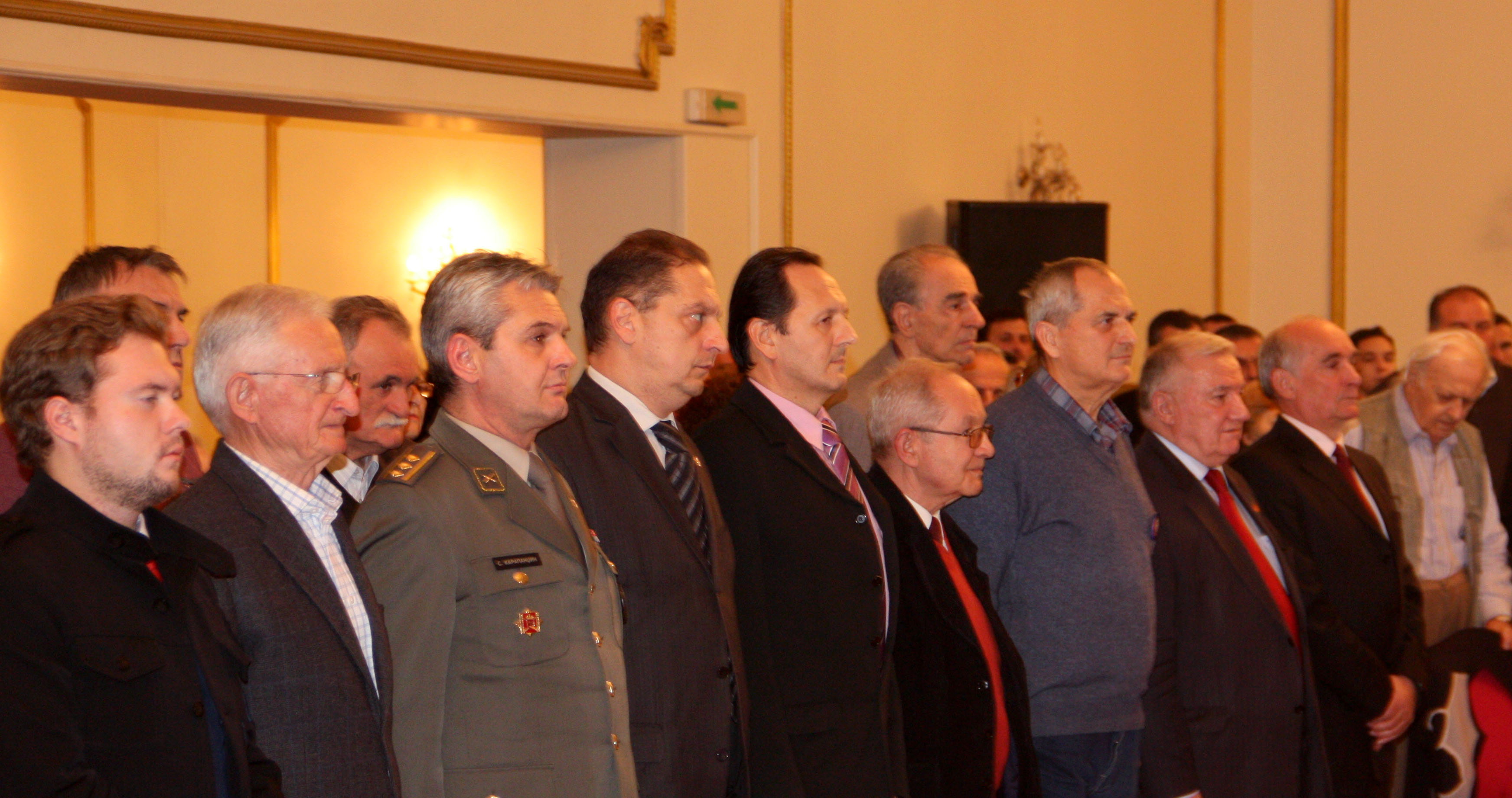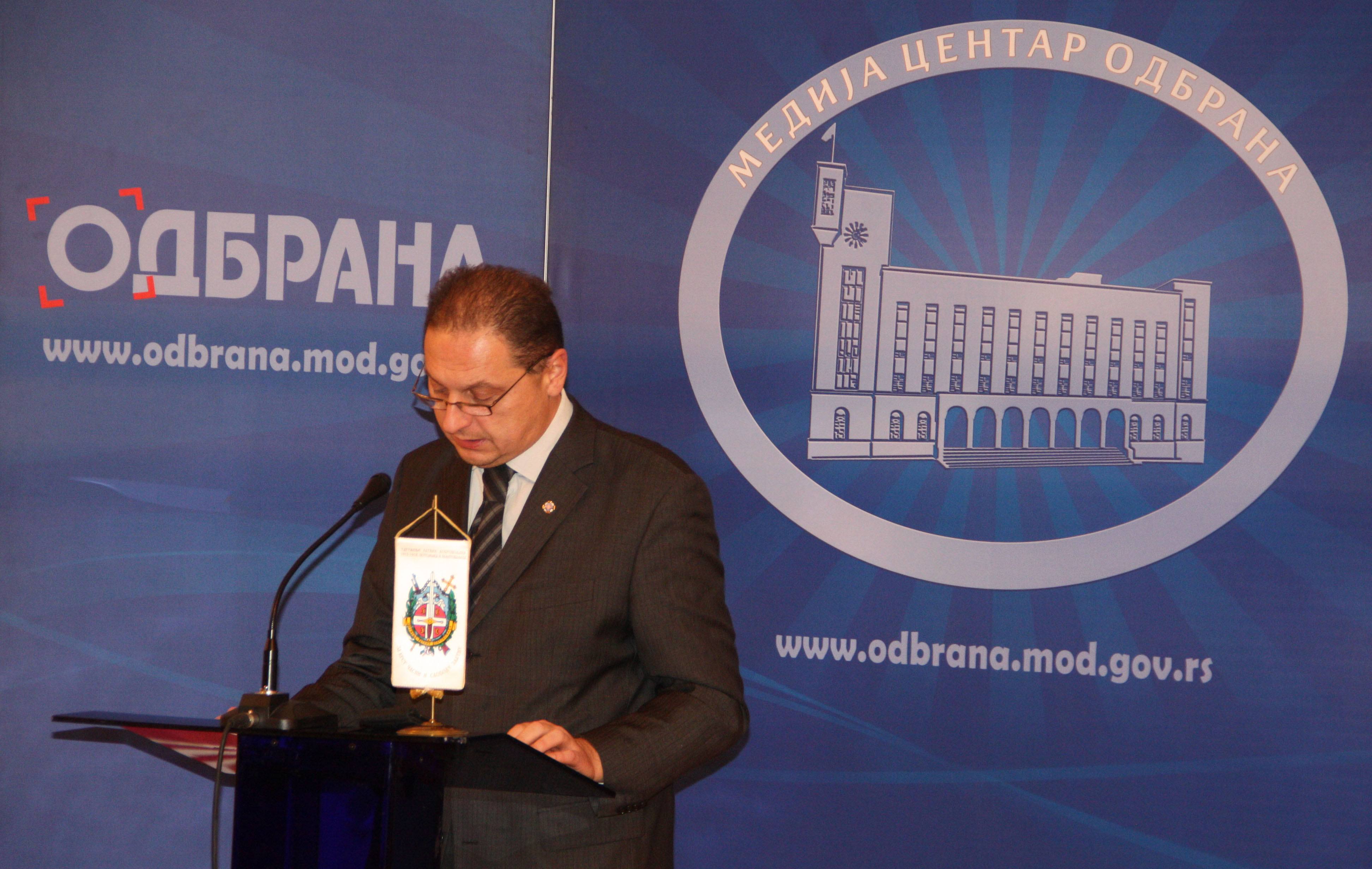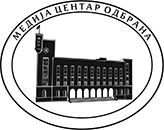25.11.2016
Marking the centenary of the death of Field Marshal Vuk
 ‘The hero is not dead if he dies for his country, but if he is forgotten’, was the main motto of this evening's marking of the centenary of the death of Lieutenant Colonel Vojin Popovic Field Marshal Vuk, the great hero of the Serbian liberation wars from 1912 to 1918 and Komitas warfare, which was organized by Association of war volunteers of 1912-1918, their descendants and admirers, with the help of Odbrana Media Centre and the Serbian Ministry of Defence, and held at the Central Military Club tonight.
‘The hero is not dead if he dies for his country, but if he is forgotten’, was the main motto of this evening's marking of the centenary of the death of Lieutenant Colonel Vojin Popovic Field Marshal Vuk, the great hero of the Serbian liberation wars from 1912 to 1918 and Komitas warfare, which was organized by Association of war volunteers of 1912-1918, their descendants and admirers, with the help of Odbrana Media Centre and the Serbian Ministry of Defence, and held at the Central Military Club tonight.Evening dedicated to a lesser-known hero of the Komitas movement, the Balkan wars and the First World War, Lieutenant Colonel Vojin Popovic recorded in history and national memory as Field Marshal Vuk, was opened by Vidoje Golubovic, president of the Association of war volunteers 1912.-1918: "We need to keep the memory of the time when the Serbian army and volunteers were commanded by honourable officers who, together with their soldiers gave everything they had for the freedom of Serbia. Above all, we should keep the memory of all those people, of women who have kept the houses, the children."
 Milos Jankovic, Assistant Minister of Defence for Human Resources, also addressed the audience: "Roads to freedom are never easy to pass, but the one chosen by our people and our volunteers, was particularly onerous. Remembering the Field Marshal Vuk and the volunteers, all our warriors and heroes, shows that our memory of the Balkan wars and the First World War, is beyond space and time. It is only with such attitude towards these heroes and what they did, that we will save what is necessary for the attitude towards the homeland."
Milos Jankovic, Assistant Minister of Defence for Human Resources, also addressed the audience: "Roads to freedom are never easy to pass, but the one chosen by our people and our volunteers, was particularly onerous. Remembering the Field Marshal Vuk and the volunteers, all our warriors and heroes, shows that our memory of the Balkan wars and the First World War, is beyond space and time. It is only with such attitude towards these heroes and what they did, that we will save what is necessary for the attitude towards the homeland."Appropriate cultural and artistic programme in which vocal octet "Smilje" (Immortelle), actor Aleksandar Kecman, descendants of Field Marshal Vuk performed and gusle players Strahinja Magdalinić and Drasko Malidžan showed that epic repertoire did not stay in the First and Second Serbian Uprising, but that it was created and it is created in this century as well in poems about the First world war, was time to present a book about this famous soldier, published by "Prometheus" from Novi Sad and Serbian Broadcasting Corporation. The book is part of the publishing enterprise of marking the century since the Great War. As editor-in-chief and owner of "Prometheus", Zoran Kolundzija, said, it had to be the centenary of the conflict for our historiography to lighten those many topics from that era that were unjustly left in the darkness of the past. "The volunteer movement is such a neglected topic of our historiography," Kolundžija said. Novica Pesic, one of the co-authors of the book, said that it was also an opportunity to go down deeper into the difficult questions of our divisions, the Thessaloniki process and countering the "Black Hand" organisation and the responsibility for the death of Field Marshal Vuk, but also to give the public finally an easily comprehensible answer to the question - who was the Field Marshal from the monument on Topličin venac in Belgrade, the man who almost flew from one point to another of our battlefields and gave the best he could for his country.
 PHOTOGALLERY
PHOTOGALLERY
